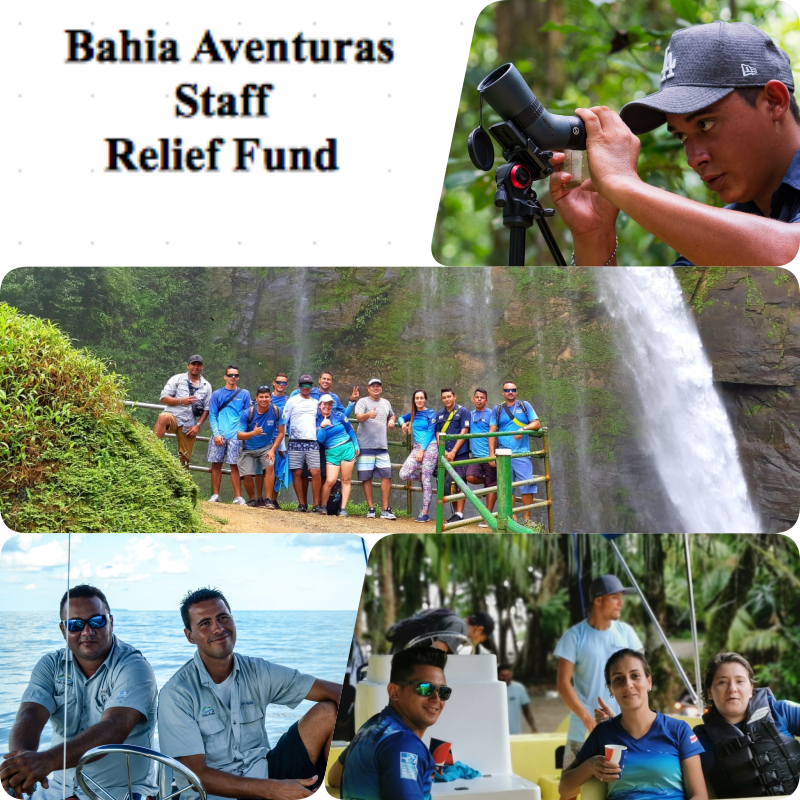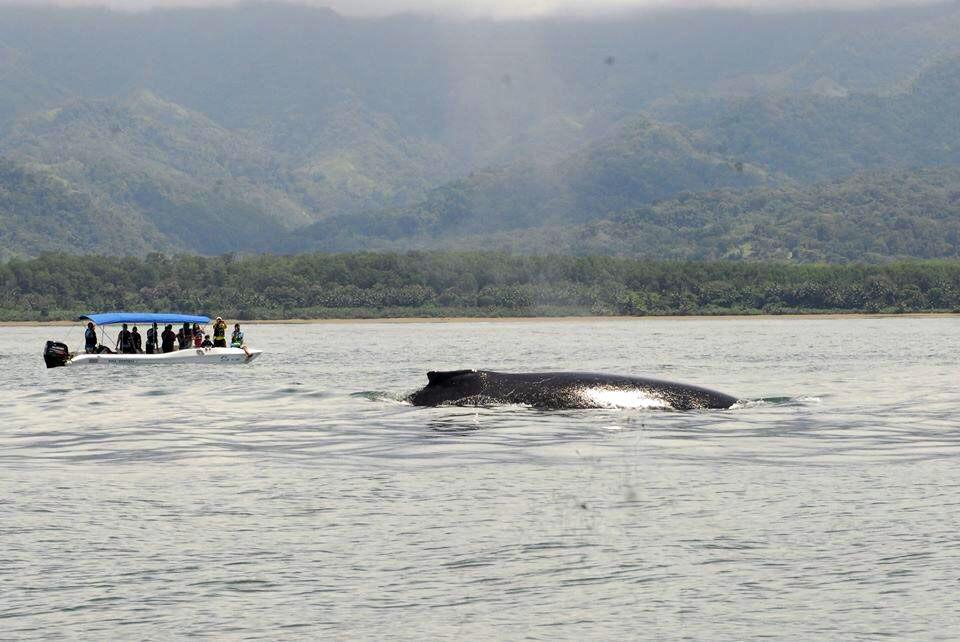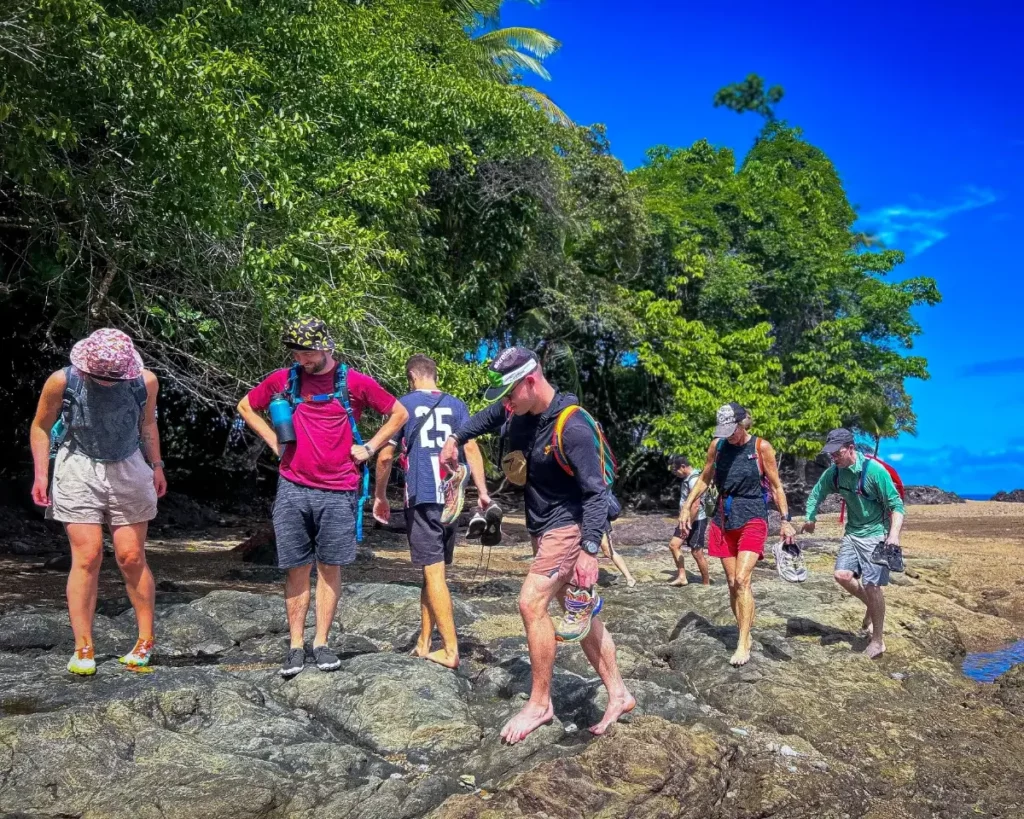Bottlenose Dolphins

The bottlenose dolphin is perhaps one of the most well known cetaceans, because of its widespread use in marine parks and research facilities. The bottlenose dolphin may be best known as “Flipper” from the television series. In Costa Rica, during dolphin encounters, bottlenose dolphins are usually found in smaller schools ranging from 2 to l2. These dolphins hunt for food alone and in groups. They’ve been known to whack at fish with their flukes, knocking the stunned prey right out of the water! Found in almost all of the world’s temperate and tropical oceans., they occupy a diverse range of marine habitats from shallow coastal areas to oceanic waters.

Physical description of bottlenose dolphin
This is a relatively robust dolphin with a usually short and stubby beak – hence the name “bottlenose”. The bottlenose dolphin (like the beluga) has more flexibility in its neck than other oceanic dolphins, because 5 of the 7 neck vertebrae are not fused together as in the other oceanic dolphins. There are 18-26 pairs of sharp, conical teeth in each side of its jaw.
Color of bottlenose dolphin
The color of the bottlenose dolphin varies considerably, but generally this dolphin is light gray to slate gray on the upper part of the body shading to lighter sides and pale, pinkish gray on the belly.
Fins and flukes, length and weight of bottlenose dolphins
The dorsal fin is high and falcate (curved) and located near the middle of the back. The flukes are broad and curved with a deep median notch. The flippers are of moderate length and pointed. Adult length is from 8-12 feet (2.5-3.8 m). These dolphins may weigh as much as 1,430 pounds (650 kg) off Great Britain, though most are much smaller in other parts of the world. Males are significantly larger than females.
Feeding habits of bottlenose dolphins
Feeding behaviors are diverse, primarily involving individual prey capture, but sometimes involving coordinated efforts to catch food, feeding in association with human fishing, and chasing fish into mudbanks. An adult bottlenose dolphin may consume 15-30 pounds (8-15 kg) of food each day. Bottlenose dolphins eat a wide variety of food, including primarily fishes, and sometimes squid, and crustaceans.
Bottlenose dolphins mating and breeding
Males reach sexual maturity at about 10 years. Females reach sexual maturity at about 5-10 years. The gestation period is 12 months. Calving can take place year-round with peaks in some areas during spring and fall. Calves nurse for over a year (12-18 months), and stay with their mothers for 3-6 years learning how to catch fish and other important tasks.

Distribution and migration of bottlenose dolphins
Bottlenose dolphins are found worldwide in temperate and tropical waters, absent only from 45 degrees poleward in either hemisphere. They are frequently seen in harbors, bays, lagoons, estuaries, and river mouths. There appear to be two ecotypes: a coastal form and an offshore form. Population density appears to be higher nearshore. Biochemical studies now are providing more information about the relationship within and between the ecotypes. In some areas, dolphins have limited home ranges; in others, they are migratory. A second species Tursiops aduncus, inhabits the Indian Ocean.
Natural history of bottlenose dolphins
Based on a number of studies of nearshore populations, bottlenose dolphins seem to live in relatively open societies. Mother and calf bonds and some other associations may be strong, but individuals may be seen from day-to-day with a variety of different associates. Group size is often less than 20 nearshore; offshore groups of several hundred have been seen. Much of what we know of the general biology of dolphins comes from studies of bottlenose dolphins, both in captivity and in the wild.
Bottlenose dolphin status
The bottlenose dolphin is protected in U.S. waters by the Marine Mammal Protection Act. Bottlenose dolphins are still generally plentiful in numbers, but are near depletion in some areas. Both incidental and direct exploitation of bottlenose dolphins are known to occur, generally at low to moderate levels. The largest direct kills have traditionally been in the Black Sea, where Russian and Turkish hunters apparently have reduced local populations. Bottlenose dolphins are accidentally caught in a variety of fishing gear, including gillnets, purse seiners used to catch tuna, and shrimp trawls. These dolphins also are occasional victims of harpoon and drive fisheries. Live captures of bottlenose dolphins for captivity have had effects on some local dolphin populations in the Gulf of Mexico and southeastern United States, but no commercial live captures have occurred in the U.S. since the 1980’s. Bottlenose dolphins are vulnerable to pollution, habitat alteration, boat collisions, human feeding of and swimming with wild animals, and human disturbance (such as boating). Several die- offs of bottlenose dolphins have occurred. Retrospective analysis of tissues of dolphins that died in 1987-1988 during a large die-off (approximately 800-1,000 dolphins) on the Atlantic U.S. coast indicates that mortality may have been caused by a morbillivirus. This virus has been linked to dies-offs of Gulf of Mexico bottlenose dolphins as well. Dolphins with disease symptoms appeared to have elevated levels of PCB’s, leading researchers to conclude that pollutants may be playing a role in these events. Preliminary evidence from other studies show links between contaminant residues in tissues and impaired immune system function.
*Adapted from American Cetacean Society for educational purposes.



